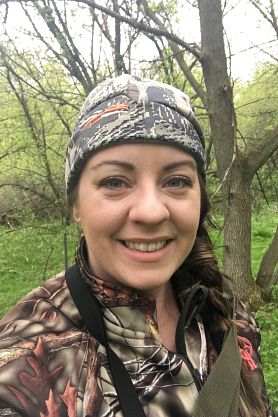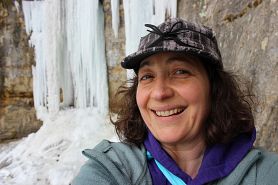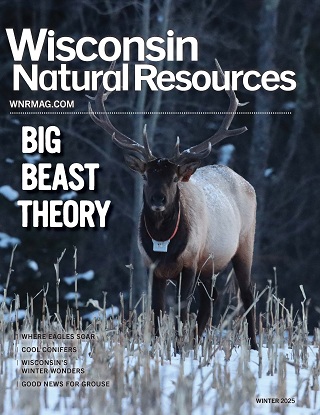Sporting Heritage Council works to widen participation
IN THIS ISSUE: HUNTING COVERAGE
- We are women who hunt
- 40 years on the hunt
- Hunting together strengthens father-daughter bond
- Sporting Heritage Council works to widen participation
Kathryn A. Kahler and Andrea Zani
 Dr. Elizabeth Baker
Dr. Elizabeth BakerAs the number of women who hunt continues to grow, their input and influence on the hunting community grows as well.
That includes the Wisconsin Sporting Heritage Council, the bipartisan 12-member council established in 2011 to advise the governor, Legislature and the State of Wisconsin Natural Resources Board on hunting, trapping, fishing and outdoor recreation matters.
In June, the council welcomed Dr. Elizabeth Baker as its newest member, confirmed by the Natural Resources Board.
Dr. Baker, a foot and ankle surgeon at the Reedsburg Area Medical Center, was nominated to the deer hunting position on the council by the Wisconsin Backcountry Hunters and Anglers, a group dedicated to protecting the state’s public land legacy. She is a lifetime member of the group and serves on its board of directors.
Dr. Baker said her entry to hunting came in high school, when her family relocated to Wisconsin and she began reconsidering her views about the sport.
“Here, I met new friends who had grown up in wonderful hunting families,” she said. “They had these traditions of spending time together outside and sharing a meal together of what they had harvested. It clicked for me as ironic that I was against hunting yet ate meat.”
Her family began exploring different outdoor recreational pursuits, but it wasn’t until college that she took a hunter safety class.
“My husband, Mitch, and I moved to Arizona for my medical schooling and there, I purchased my first bow deer hunting license,” she said. “Mitch introduced me to the fun of archery hunting for mule deer, coues deer and elk in the desert mountains.
“It combined my enjoyment of physical activity, exploring public lands and spending time with my husband.”
Dr. Baker describes hunting as a challenging process and says she enjoys “every new experience and encounter with wildlife. I want to reinforce and build positive relationships between private land owners and hunters who need access.”
The latter, she said is a point of emphasis for the recruitment, retention and reactivation efforts of the DNR and other groups. “Access and opportunity are vital to the R3 movement.”
R3 PROGRAM REACHES OUT
The Sporting Heritage Council is tasked with improving recruitment and retention of Wisconsin sports enthusiasts by encouraging youth participation and improving public access, among other objectives.
 Jessica Tomaszewski
Jessica TomaszewskiAlong with Dr. Baker, a second woman in the hunting community, Jessica Tomaszewski, was considered for the council earlier this year, nominated by the Ruffed Grouse Society for the bird hunting spot. Tomaszewski is an academic and career adviser for UW-Stevens Point’s College of Natural Resources.
The Natural Resources Board ultimately voted narrowly to retain the incumbent, Mark LaBarbera, credited with doing much good work in that council spot. But the vote process included important discussion focusing especially on the need to encourage and support women in hunting.
“The challenge with the Triple R program is to reach out to other segments of our population,” board member Bill Smith said during the discussion. “And younger people, women in particular, are showing increased interest and increasing numbers.
“By the seats on this council, we can communicate that the outdoors world is open to a wider range of people than our history. And I think it’s a very significant statement to make and I think it’s incumbent for our success in the future to recruit and expand the base of people that support conservation.”
Opportunities such as Learn to Hunt and other R3 related programs can educate about hunting and bring more people to the table, which in turn will aid conservation, Tomaszewski noted.
“Good hunters fundamentally understand the game they are pursuing and the place they occupy in the ecosystem,” she said. “Good hunting requires putting in the time and energy to gain information, through observation and study, and access to lands for hunting. Sometimes, luck and good equipment can help, but at a fundamental level the hunter must hone their skills to be successful.
“Hunting and fishing are currently at the financial heart of conservation efforts. For our ecosystems to be in the best shape possible, hunters and fishers must continue to come to the table with the best of our observations, listen to the science of our biologists and collaborate for solutions that keep our ecosystems as healthy as possible.”
Kathryn A. Kahler is associate editor and Andrea Zani is managing editor of Wisconsin Natural Resources magazine.

